School of Information Technology
Bachelor of Information Technology in Web Design and Development
Qualification / Course Information
Minimum Duration:
3 Years
Minimum Credits:
375
NQF Level:
7
SAQA:
117900
MODE:
Contact Learning
CAMPUS:
Centurion (Pretoria) & Durbanville (Cape Town)
LANGUAGE:
English
QUALIFICATION OVERVIEW
In this programme students will be equipped with knowledge of the most current industry standard and cutting edge web development technologies, including web-based marketing enabling them to become part of one of the fastest growing sectors of the creative industry. It relates closely to the knowledge economy where all individuals, companies and organisations depend on information for effective decision-making. The programme was designed around fundamental, conceptual and applied competence in this context. At the exit point the students will be able to design web sites including interactive designs and multi-media. A large portion of the programme consists of coding including developing in HTML, CSS, JavaScript, ASP and PHP. Furthermore, students will acquire knowledge of Mobile App development and database-supported web applications. Students will graduate with a cutting edge portfolio that will reward them in an excellent career in online/web-based communication. Career opportunities are extensive given that computer-based information systems are almost universal. Graduates are likely to find employment as a Website and applications developer, Games Developer, SEO Specialist, Social Media manager, and many more.
Entry Requirements
THE ADMISSION CRITERIA FOR THE BACHELOR OF INFORMATION TECHNOLOGY IN WEB DESIGN AND DEVELOPMENT ARE:
-
a Senior Certificate (SC) with degree endorsement
-
a National Senior Certificate (NSC) with a minimum of 50% in four 20-credit subjects and a minimum of 30% in English Home Language or First Additional Language; OR
-
a National Senior Certificate – Vocational Level 4 (NC(V)) with a minimum of 60% in three fundamental subjects including English; and minimum 70% in four vocational subjects; OR
-
a cognate Higher Certificate (NQF 5), Advanced Certificate (NQF 6) or Diploma (NQF 6).
ADDITIONAL ADMISSION REQUIREMENTS:
-
A minimum of 50% for Mathematics OR
-
A minimum of 70% for Mathematical Literacy OR
-
A minimum of 50% for Information Technology (not CAT).
OTHER ACCESS PATHWAYS
-
A cognate Higher Certificate (NQF 5), Advanced Certificate (NQF 6) or Diploma (NQF 6).
To find out more about alternate access routes at STADIO, please click HERE
QUALIFICATION OUTCOMES
-
Demonstrate integrated knowledge of the key areas and practices of web design and web development, including an understanding of and the ability to apply and evaluate the key terms, concepts, facts, principles, rules and theories, and how it relates to other disciplines such Information Technology System Development and System Support.
-
Demonstrate an understanding of knowledge as contested, and the ability to evaluate types of knowledge, principles and concepts common to the study of web design and web development.
-
Demonstrate an understanding of a range of methods of enquiry in a field, discipline or practice, and their suitability to specific investigations; and the ability to select and apply a range of methods to resolve problems or introduce change within web design and web development.
-
Demonstrate the ability to identify, analyse, evaluate, critically reflect on and address complex problems, applying evidence- based solutions and theory-driven arguments in web design and web development
-
Demonstrate the ability to take decisions and act ethically and professionally, and the ability to justify those decisions and actions drawing on appropriate ethical values and approaches within a web design and web development environment.
-
Demonstrate the ability to develop appropriate processes of information gathering for a given context or use; and the ability to independently validate the sources of information and evaluate and manage the information.
-
Demonstrate the ability to develop and communicate ideas and opinions in well-formed arguments, using appropriate terminology in the web design and web development and related fields.
-
Demonstrate the ability to manage processes in unfamiliar and variable contexts, recognising that problem solving is context and system bound, and does not occur in isolation.
-
Demonstrate the ability to identify, evaluate and address his or her learning needs in a self-directed manner, and to facilitate collaborative learning processes.
-
Take full responsibility for his or her work, decision-making and use of resources, and show limited accountability for the decisions and actions of others in varied web design and web development contexts.
QUALIFICATION CURRICULUM
1st YEAR MODULES
-
Computational Thinking and Introduction to Programming
-
Induction to Business Studies
-
Information Security for IS Practitioners
-
Information Systems 1
-
Introduction to Databases
-
Introduction to Web Programming
-
Object-Oriented Programming
-
Web Design A
-
Web Design B
2nd YEAR MODULES
-
Data and Decision-making
-
Information Systems 2
-
Statistics
-
Web Animation Scripting
-
Web Development 2A
-
Web Development 2B
-
Web Development 2C
-
Web Marketing
3rd YEAR MODULES
-
Content Management Systems
-
Information Systems 3
-
Mobile Application Development A
-
Mobile Application Development B
-
Introduction to Research
-
Web Development Project
CAREER OPPORTUNITIES
Below are some key career opportunities that you may consider once you have completed this qualification:
-
UX Designer
-
Content Manager
-
Website Developer
-
Front-End Designer
-
Database Developer
-
WordPress Developer
-
Social Media Manager
-
Mobile Game Developer
-
SEO Specialist / Consultant
-
Web Application Developer
